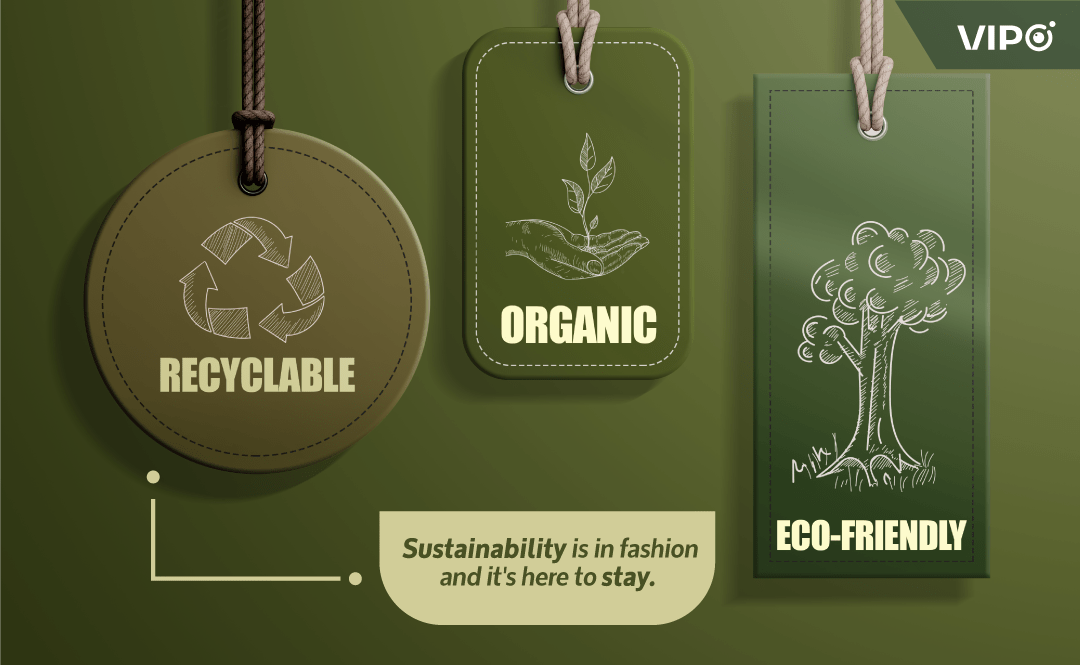
What is Sustainable Fashion?
Sustainable fashion is an approach to designing, producing, and consuming clothing and accessories in a way that is environmentally and socially responsible. The concept of sustainable fashion is built on the principles of sustainability, which aim to create a world that meets the needs of the present generation without compromising the ability of future generations to meet their own needs.
The fashion industry has a significant impact on the environment and the people involved in its production. It is one of the largest polluters globally, and the demand for fast fashion has resulted in exploitative labor practices, unethical sourcing of materials, and excessive waste generation.
Recent studies have shown that there is a growing demand for sustainable fashion. According to a report by ThredUp, a secondhand fashion retailer, the resale market is set to reach $64 billion by 2024, up from $28 billion in 2019. Another study by McKinsey found that 66% of global millennials are willing to pay more for sustainable products.
One of the key principle of sustainable fashion is reducing waste. This includes minimizing the amount of fabric waste generated during production, using leftover materials to create new garments, and recycling materials to create new products. Sustainable fashion also encourages the use of circular design, where garments are designed with the end of their life cycle in mind, so they can be easily repurposed or recycled.
What does Rent An Attire do?
We offer premium fashion rental services at affordable prices. While the rental model is a step in the right direction towards sustainability, it's important to consider the broader issues plaguing the fashion industry. The fashion industry has long been associated with environmental degradation and labour exploitation. Therefore, it's essential to address the industry's diversity problem, decolonize land and labour, and promote sustainable practices.
Addressing Sustainable Fashion’s Diversity Problem
The fashion industry has a diversity problem, where people of colour are often underrepresented in positions of power and influence. This issue is particularly pronounced in countries like India, where Rent An Attire is based. The Indian fashion industry has traditionally focused on catering to the needs of the wealthy and the elite, leaving out the vast majority of the population. To address this issue, Rent An Attire offers a wide range of designer outfits from some of the most renowned brands, making it easier for individuals to access high-quality fashion at an affordable price.
Decolonizing Land, Labour, and Fashion
The fashion industry is heavily dependent on the exploitation of labor and resources, particularly in the Global South. For example, cotton, one of the most widely used fibers in the fashion industry, is often produced in countries like India and Pakistan, where labor exploitation is rampant. Furthermore, the fashion industry's carbon footprint is staggering, with emissions from textile production alone accounting for 10% of global greenhouse gas emissions. Rent An Attire's rental model is one way to reduce waste and promote reuse of clothing. Additionally, Rent An Attire is committed to promoting sustainable practices in the fashion industry by using eco-friendly packaging and collaborating with sustainable brands.
Access to High-Quality Fashion at an Affordable Price
Rent An Attire offers a wide range of designer outfits from some of the most renowned brands, such as Sabyasachi, Ridhi Mehra, Sonam Parmar, and Kora. This makes it easier for individuals to access high-quality fashion at an affordable price, without having to wait for sales and discounts. Renting clothes is also a more sustainable option, as it reduces the demand for new clothes and promotes the reuse of existing clothing.
Conclusion
While our rental model is a step in the right direction towards sustainability, there's still work to be done in terms of making the fashion industry more equitable and environmentally friendly. We are helping to promote sustainability by reducing waste and promoting reuse of clothing, and by collaborating with sustainable brands. Our commitment to offering high-quality fashion at an affordable price is also commendable, as it helps promote accessibility to fashion and reduces the demand for new clothes.





